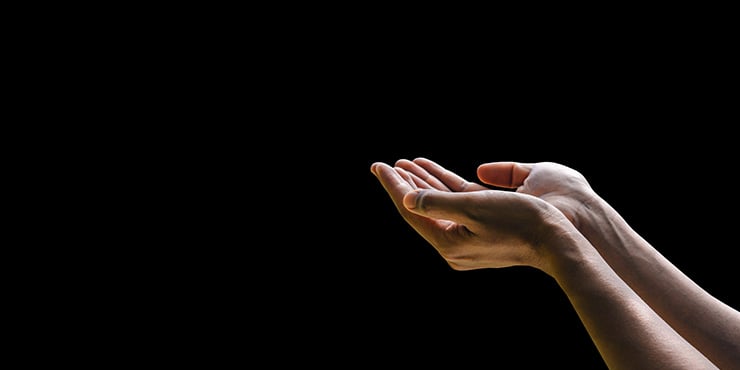
Table of Contents
The Divine Feminine is a spiritual concept that has recently gained increased attention. It refers to the feminine energy in all of us, regardless of gender identity, and represents the nurturing, compassionate, and intuitive qualities often associated with femininity.
Key Takeaways
- The Divine Feminine concept embodies nurturing, compassionate, and intuitive energy.
- Divine femininity offers balance to the masculine within the human experience.
- Its traits include emotional intelligence, creativity, and divine wisdom.
- Awakening the true Divine Feminine connects you with the inner world and promotes self-awareness.
- Practices like yoga enhance divine love and spirituality.
- Historical symbols of the Divine Feminine reflect sacred power within the human experience.
Praise of masculine energy in a society led to imbalance and lack of harmony. This is why the importance of the Divine Feminine lies in its ability to create balance with the long-valued masculine energy that governs strength, power, and control, often at the expense of feminine qualities.
By embracing sacred femininity, we can tap into personal and collective sensuality, softness, inner creativity, compassion, and courage.
At the same time, the Divine Feminine refers to collaboration and empathy. This is why everyone—not just women—gendered or not—needs to connect to their feminine energies and explore the Divine Feminine.
"The Divine Feminine is a way of describing a universal, archetypal energy associated with the nurturing, creative, and life-giving aspects of the universe. It is an energy present in all things and not limited to any particular gender, culture, or belief system." - Dr. Amy Hale.
Roots and history of the Divine Feminine
The concept of the Divine Feminine has its roots in ancient cultures and traditions, where the feminine was revered and celebrated. In many indigenous cultures, the Earth was seen as a nurturing mother figure, and the feminine was associated with the cycles of nature, creation, and intuition.
In ancient Egypt, the goddess Isis was worshipped as the Divine Feminine, representing motherhood, fertility, and healing. She was seen as the embodiment of feminine energy, and her worship continued for thousands of years. In some modern-day pagan and Wiccan traditions, Isis is still revered and worshipped as a powerful goddess.
In ancient Greek mythology, many powerful goddesses such as Athena, Artemis, and Aphrodite were seen as the embodiment of the Divine Feminine. In Hinduism, the goddesses Durga, Kali, and Lakshmi represent different aspects of the Divine Feminine, from creation to destruction and abundance.
Despite the worshiping of the Divine Feminine in ancient cultures, over time, the patriarchal system has suppressed feminine qualities and the rise of masculine energy.
However, in recent years, there has been a resurgence of interest in the Divine Feminine, with many people recognizing the need to balance masculine and feminine energies in everyday life.
Gendered terminology
"Masculine" and "feminine" are often used to describe certain characteristics or energies traditionally associated with men and women, respectively. These terms are used to describe qualities such as strength, assertiveness, and logic as masculine, while qualities such as nurturing, intuition, and emotion are considered feminine.
However, it's important to note that these gendered terms are not necessarily limited to biological sex, as anyone can embody qualities associated with either gender.
Additionally, it's crucial to recognize that gender roles and stereotypes are social constructs that have been reinforced by society rather than inherent qualities of biological sex.
Regarding spiritual practices, "masculine" and "feminine" are often used to describe different energies rather than gender. Masculine energy is associated with action, structure, and the outward expression of power, while feminine energy is linked to intuition, creativity, and the inward nurturing of oneself and others.
While it's important to recognize the different energies associated with masculinity and femininity, it's crucial to avoid limiting oneself or others based on these gendered terms. Instead, we should strive to balance these energies, embracing the strengths and qualities of the Divine Feminine and Divine Masculine.
The concepts of yin and yang can help to establish balance between masculine and feminine energies. In traditional Chinese philosophy, yin energy represents feminine energy, characterized by receptivity, softness, and introspection. Yang, on the other hand, represents masculine energy, characterized by qualities such as activity, strength, and assertiveness.
Qualities of the Divine Feminine
The Divine Feminine is often associated with intuition, nurturing, creativity, empathy, and wisdom. These qualities are not limited to women but are attributes that anyone can embody, regardless of gender.
By embracing the qualities of the Divine Feminine, we can enhance our spiritual journey and bring more balance into our lives.
Some examples of the Divine Feminine qualities in everyday life include:
- Nurturing oneself and others through self-care practices, such as meditation, yoga, or time in nature.
- Using intuition and empathy to connect with others and to make decisions that align with our inner voice.
- Expressing creativity through art, music, or other forms of self-expression.
- Embracing wisdom and inner knowledge guides our actions and cultivates a deeper understanding of ourselves and the world around us.
- Practicing compassion and forgiveness towards ourselves and others as we navigate our spiritual journey.
By incorporating these qualities into our daily lives, we can awaken the Divine Feminine within ourselves and connect with the energy of the sacred feminine.
Benefits of connecting to the Divine Feminine
 Connecting to the energy of the Divine Feminine can bring a range of benefits to our spiritual, emotional, and physical well-being.
Connecting to the energy of the Divine Feminine can bring a range of benefits to our spiritual, emotional, and physical well-being.
- Increased self-awareness
- Enhanced creativity
- Greater compassion and empathy
- Increased balance and harmony
- Greater connection to nature
- Greater sense of purpose
How to connect to the Divine Feminine
Connecting to the energy of the Divine Feminine can be a deeply transformative and enriching experience.
Here are some spiritual practices that can help you connect with this energy:
Meditation
By quieting the mind and focusing inward, you can become more attuned to the subtle energies of the universe and the feminine aspects of your being.
Yoga
Through yoga postures, breathwork, and meditation, you can tap into the energy flow within your body and connect with the universal flow of feminine energy.
Chakra work
Working with the chakras, particularly the heart and sacral chakras, can awaken the feminine aspects of your being.
Spend time in nature
Being in nature can help you connect with the natural rhythms of the mother earth. By immersing yourself in the beauty and serenity of nature, you can align yourself with the creative forces of the universe and the nurturing energy of the Divine Feminine.
Create a sacred space
Dedicating a physical space in your home or elsewhere to your spiritual practice, creates a sanctuary where you can connect with the sacred femininity.
Work with crystals
Certain crystals, such as rose quartz, moonstone, and amethyst, are associated with Divine Feminine energy and can be used to facilitate a connection with this energy by carrying or wearing these chakra crystals or incorporating them into your meditation or ritual practices.
Explore goddess archetypes
The Divine Feminine is often associated with goddess archetypes, such as Isis, Kuan Yin, or Lakshmi. By exploring these archetypes and learning about their qualities and attributes, you can deepen your connection to the Divine Feminine and better understand your feminine energy.
Honor the cycles of the moon
The moon cycles can be used to enhance the connection to the feminine. Observing the moon's phases and engaging in practices that align with each phase, such as meditation, journaling, or ritual, can deepen your connection to the Divine Feminine.
Connect with other women
Connecting with other women is a powerful way to tap into the feminine energy. By sharing experiences, supporting each other, and celebrating the feminine qualities within each other, you can create a community that nourishes and supports your connection.
Journaling
Journaling can be a powerful way to connect with the Divine Feminine within yourself. By writing down your thoughts, feelings, and experiences, you can become more self-aware and gain insight into your feminine energy. You can also use journaling to explore your connection to the Divine Feminine and record any spiritual experiences or insights you may have.
Self-awareness and self-love
Cultivating self-awareness and self-love is essential for connecting with the Divine Feminine. By developing a deeper understanding and acceptance of yourself, you can embrace your own feminine energy and connect with the universal flow of feminine energy.
Mindfulness, self-reflection, and self-compassion can help you cultivate these qualities and deepen your connection.
Divine Energy and Kundalini
One way the Divine Feminine energy is manifested is through the awakening of the Kundalini, a dormant energy that lies at the base of the spine. When this energy is awakened, it travels up through the chakras, or energy centers bringing about a range of powerful physical, emotional, and spiritual experiences.
The role of the Divine Feminine in the Kundalini awakening process is often emphasized in spiritual traditions. It is said that the feminine energy is responsible for nurturing and guiding the Kundalini energy as it rises through the chakras. This energy is often depicted as a coiled serpent, symbolizing the potential for transformation and awakening within us.
In many spiritual practices, specific techniques are used to awaken the Kundalini energy. These may include meditation, breathwork, yoga, and other practices that focus on balancing and activating the energy centers in the body.
However, it is important to approach these practices with caution and guidance from a qualified teacher.
Divine Feminine today
In today's world, there is a growing recognition of the importance of the Divine Feminine, both in spiritual practice and in wider society. Many people seek to reconnect with this energy to find greater balance and harmony in their lives.
One of the key reasons for this is the recognition that traditional gender roles and stereotypes have created imbalances in society and that there is a need for greater respect and recognition of the feminine.
Many people see a connection between the Divine Feminine and the planet itself. As the earth faces increasing threats from climate change and environmental degradation, there is a growing awareness that we need to reconnect with the natural world and find ways to live in greater harmony.
The feminine qualities of nurturing, caring, and connection to the earth are seen as essential for this work.
Conclusion
The Divine Feminine has a rich history and a powerful presence in spiritual and mystical practices worldwide. By reconnecting with this energy and embracing its qualities, we can find greater balance, harmony, and meaning in our lives.
In a world shaped by traditional gender roles and stereotypes, there is a growing recognition of the need for greater respect and recognition of the feminine. By embracing the Divine Feminine and working to bring balance to our lives and our relationship with the planet, we can create a more sustainable and harmonious world for all.
References
The Divine Feminine - Wikipedia
The Divine Feminine: What It Is and How to Embrace It | Astrology.com
What Is the Divine Feminine? (sadhguru.org)
Disclaimer
The contents of this article are provided for informational purposes only and are not intended to substitute for professional medical advice, diagnosis, or treatment. It is always recommended to consult with a qualified healthcare provider before making any health-related changes or if you have any questions or concerns about your health. Anahana is not liable for any errors, omissions, or consequences that may occur from using the information provided.

By: Anahana
The Anahana team of researchers, writers, topic experts, and computer scientists come together worldwide to create educational and practical wellbeing articles, courses, and technology. Experienced professionals in mental and physical health, meditation, yoga, pilates, and many other fields collaborate to make complex topics easy to understand.
